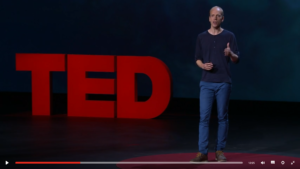 The Opening: Alexander Betts started his talk by an anecdote of his experience on the day after the Brexit vote. He realized that while he couldn’t believe that his countrymen would vote against the EU, he was even more surprised at the fact that he didn’t really know the regions that voted against the EU. He was guilty of being ignorant. This led to his outline of why some people voted to leave the EU.
The Opening: Alexander Betts started his talk by an anecdote of his experience on the day after the Brexit vote. He realized that while he couldn’t believe that his countrymen would vote against the EU, he was even more surprised at the fact that he didn’t really know the regions that voted against the EU. He was guilty of being ignorant. This led to his outline of why some people voted to leave the EU.
Main Points: Betts explains that the people who voted against the EU simply wanted to take back control of their country during a time when a lot of change is going on and during a time when they feel like they do not have control over the future. He highlights the idea of confirmation bias-everyone living in their own ideological bubbles. In order to create more tolerant societies, a policy of inclusive globalization must be followed. Betts is one of the few globalists who acknowledges that globalization, while net positive, creates winners and losers.
The Closing: He closes by offering four solutions that will promote a more inclusive form of globalization, one that focuses on a win-win outcome. First, he emphasizes the need to make truths and facts more important than the system of lies and deception that seems to prevail today. Second, he suggests that we focus on promoting interactions between different communities. According to Betts, the UK districts that voted against the EU were the ones that had the least amount of immigration. Third, he highlights the need for inclusive globalization, one where not only the powerful reap the benefits at the expense of the more economically disadvantaged. Finally, he suggests that more centrist politics are more likely to support globalization. Thus, we should aim to move our polarized societies back to the center.
My Opinion: I thought this talk was interesting because it outlined the necessary foundations for successful and accepted globalization. All the TED talks that I saw before this were focused on explaining what a wonderful future we will all live in if only we accept a policy of globalization. None of them addressed the necessary fundamental conditions that would lead to a society that would be welcoming of globalization.
Even though Betts offers four different methods to create this society favoring globalization, I would argue that all of the factors are based on increased education. The first solution calls for the return of importance of facts over lies. If citizens are educated in distinguishing between propaganda and facts, they will have the tools to eradicate ignorance and fear from their societies. Secondly, promoting interactions between different communities simply means educating locals on the various cultures of the world. Next, Betts talks about the idea that the regions that voted against globalization were actually the regions that benefited the most from globalization. Yet, they were not aware of it. Again, education would go a long way in showing those communities the truth. Finally, as I have mentioned in a previous post, the only way to recreate centrist politics is by listening to the other side instead of villianzing it, by educating yourself on the other point of view.
I truly believe that the more educated a society is, the less ignorant it will be to the forces that drive prosperity and thus the more likely they will be to support policies that will further their economy. Removing the fear of the “other” and promoting inclusion is the only way that our societies will prosper and that our world will avoid implosion.